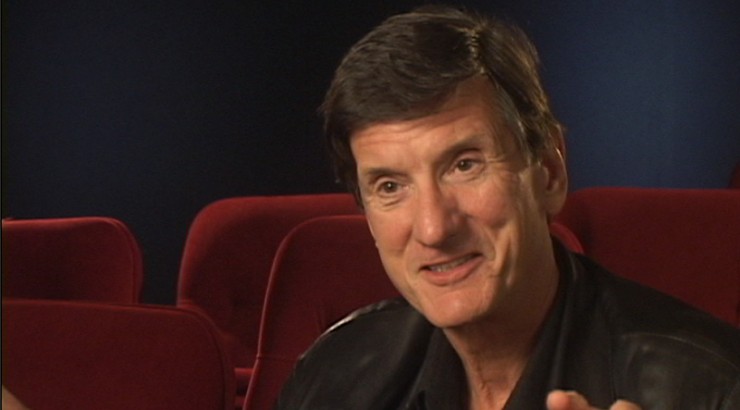
Prof. John Badham Talks “WarGames”, and His New Book, to LA Times and IndieWire
September 11, 2013
Professor John Badham, one of the many faculty members we have first known for their big-screen successes, has been making headlines with the publication of his new book, John Badham On Directing: Notes from the Set of Saturday Night Fever, War Games, and More (Amazon link). Dodge College students will enjoy his experienced perspective in the classroom again this semester, while others will have to be content with excerpts from recent LA Times and IndieWire.com interviews:
Cari Beauchamp [IndieWire]: What was the catalyst for writing “John Badham on Directing”?
John Badham: My first book was about working with actors and after it was published, I heard from many actors. The one commonality in their response was their distrust of directors. Why? Because too often they had been abused and treated like a slab of meat.
What’s the biggest mistake you see directors making?
They stay away from their actors and don’t create opportunities to let their actors know they care about them. The first thing I do when the cast is set is to call each actor and ask how I can help them. Even if they have no concerns, they come to work with enthusiasm because of that call. Often I will drag myself to the stage early to go into the make up room and just see how they are doing. If there is anything wrong, it can be worked out in private and head off any drama in front of the crew or the rest of the cast.
What’s the most important lesson you have learned about directing?
So much of it is being able to open yourself up to listen to other people’s ideas – in filmmaking and in life. If we have an idea, we are kind of proud of it and sometimes we hang on to it way too hard. As a young director, if someone suggested something, I would often say I’m not going to do that and a minute later I realized it was a good idea. So I have learned to give credit to others and not to stress about it.
In addition to directing, you are teaching at Chapman University. What’s the most important thing you teach your students?
In my directing classes, I make the students go in front of the camera to get familiar and stay familiar with how hard this is. It is scary up there. I know for myself, I am Jack Nicholson when I am behind the camera, but in front of it, I turn to mush. It’s important for them to know what it feels like.
Susan King [LA Times]: What are your memories of “WarGames”? Was it a fun shoot for you?
It was a good shoot. I think everything started out in a little bit of chaos because I was the second director.
Had they already started shooting when you come on board?
They had shot for a couple of weeks. I think the producers and MGM and [United Artists] decided they were not happy with the tone of the way it was going. My friend, [producer] Leonard Goldberg, contacted me and said, “Can you tell me where you think we are going wrong?” That developed into me coming in and moving on the picture. But once I got in there, I think I understood a good tone for it and we had fun doing it.
In your book, you talk about the necessity of working with your actors as collaborators. Do you work with actors differently on a TV series than you do in a feature film?
If I come into the show “Nikita” — I have done several of those — the actors know these characters backward and forwards. I am not going to come in and reinvent their characters. I need to tune in to where they are at.
In a film, you, the director, have certain ideas. Then you go out and hire Al Pacino and Goldie Hawn, who just by the nature of their careers are very creative people. They have ideas. My philosophy is that you let them know constantly that you are interested in their opinion.
When a director has a very distinct, clear vision, that is something you should talk about extensively before you start filming, because if you do have disagreements, you can figure them out and resolve them. Sometimes what seems like a big problem turns out to be something very minor.
On Tuesday night, he’ll be appearing at the 30th anniversary screening of one of his biggest blockbusters, “WarGames,” at the Landmark Regent Theatre in Westwood. Nominated for three Academy Awards, the witty, edge-of-your-seat thriller made Matthew Broderick a star as a teenage computer whiz who nearly causes World War III. Film critic-historian Stephen Farber hosts the event, which also features Oscar-nominated screenwriters Lawrence Lasker and Walter Parkes and star Dabney Coleman.
Interest piqued? Make sure to check out the interviews in their entirety from the original posts on The LA Times and IndieWire websites!

